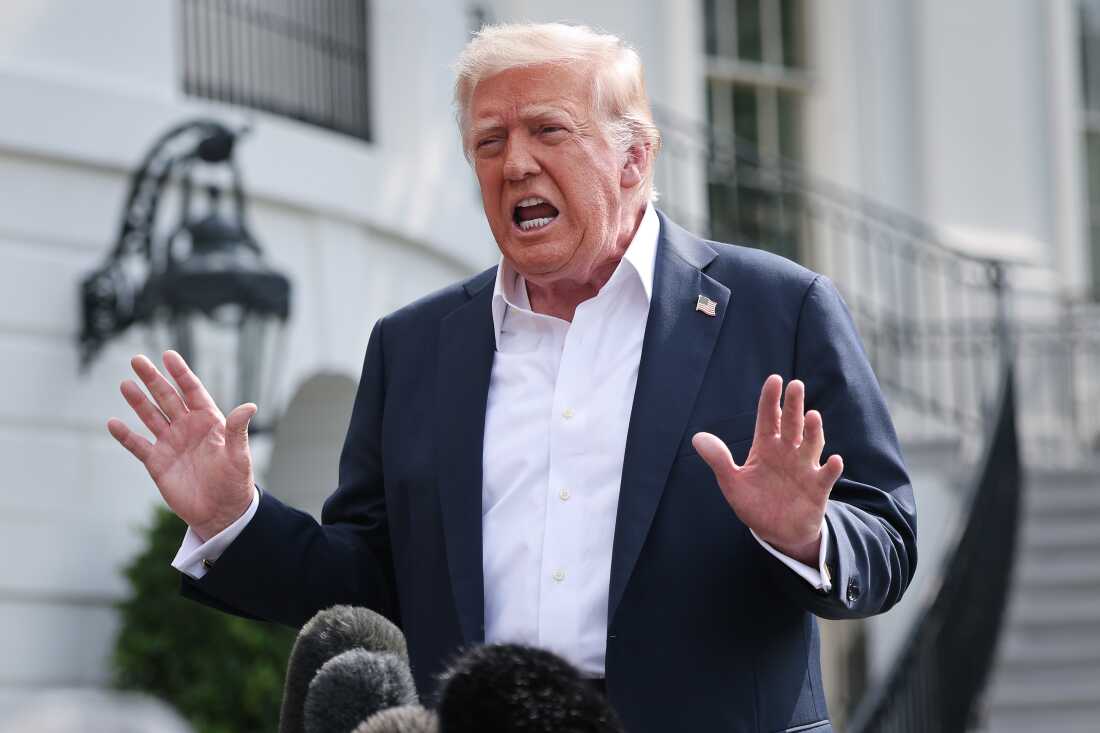Three Venezuelan men who the Trump administration sent to a notorious prison in El Salvador said they experienced physical and psychological torture.
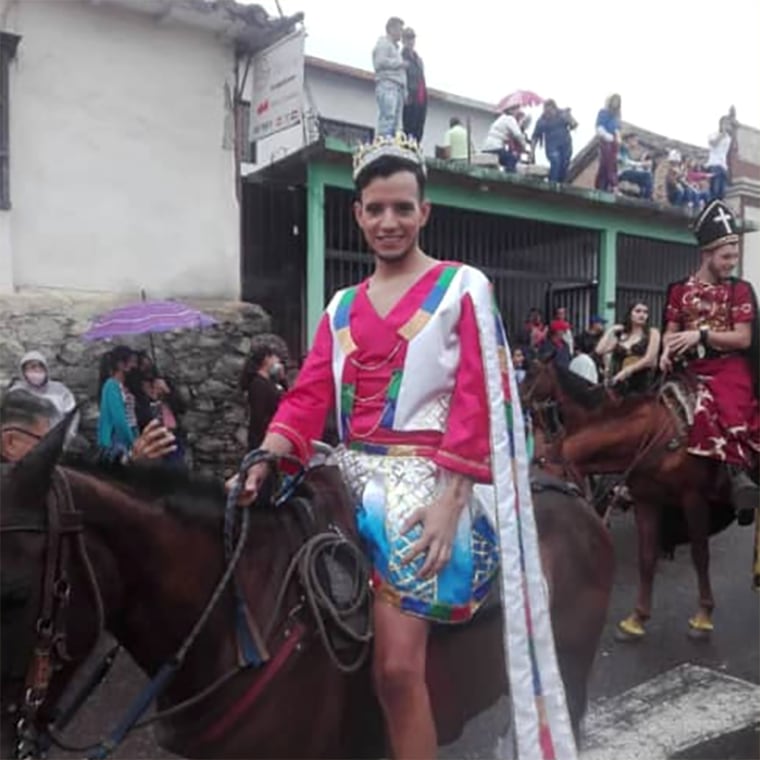
Three Venezuelan men told NBC News they experienced physical and psychological torture, including one man’s allegation that he was sexually assaulted, after the Trump administration sent them to a notorious prison in El Salvador.
The men were held for four months in the Terrorism Confinement Center, or CECOT, a Salvadoran megaprison known for its harsh conditions and reported abuse. The allegations included beatings that left bruises and cuts, psychological abuse and the denial of necessities such as food or bathroom access.
The Trump administration sent about 250 Venezuelan men to CECOT in March and has accused them of being members of the Tren de Aragua gang. Many of the men and some of their families and attorneys have denied the claim. The men were released and flown to Venezuela on July 18 as part of a prisoner swap with the United States.
Andry Hernandez Romero, a 32-year-old gay asylum-seeker from Venezuela, told NBC News that one day during his imprisonment he was taken to solitary confinement, where prison staff “made me kneel, perform oral sex on one person, while the others groped me and touched my private parts” and “stroked me with their batons.”
He said he could not identify the guards because their faces were covered and the room did not have a lightbulb, with only a small amount of light coming in through a hole in the ceiling.
Hernandez said the incident left him devastated.
“I didn’t want to eat. I didn’t want to do absolutely anything,” Hernandez said. “The only thing I did was stay laying down, look at the toilet, remember my family, asking myself a million questions.”
Another detainee who spoke to NBC News, Jerce Reyes, said Hernandez told him after they were released that he was sexually abused by CECOT staff. Hernandez also said on Venezuelan state media that he was sexually abused while in CECOT.
“He told us that when we arrived in Venezuela, that he suffered abuse at the hands of guards there in El Salvador,” said Reyes, referring to Hernandez’s account of sexual abuse.

Hernandez said he was unaware of any formal system at CECOT through which he could report the alleged abuse and that if detainees tried to complain to superiors at the prison, they would often be subjected to beatings by guards.
The Salvadoran government did not immediately respond to a request for comment on Hernandez’s sexual assault allegations and claims from other Venezuelan men that they were physically and psychologically abused in the prison. The government has previously said it observes safety and order standards, and the director of CECOT told CNN that “the whole operation is based on strict respect for human rights.” In a statement, the U.S. Department of Homeland Security referred NBC News to the Salvadoran government for comment because the Venezuelan men were “not U.S. citizens or under U.S. jurisdiction.”
When asked whether the U.S. government would continue to send people to CECOT, Assistant Secretary Tricia McLaughlin said in a statement, “whether it is CECOT, Alligator Alcatraz, Guantanamo Bay or another detention facility, these dangerous criminals will not be allowed to terrorize U.S. citizens.”
The statement said that President Donald Trump and Homeland Security Secretary Kristi Noem “are using every tool available to get criminal illegal aliens off our streets and out of our country. Our message is clear: Criminals are not welcome in the United States.”
‘You will not be leaving here’
Hernandez and others said they were repeatedly beaten by prison officials.
“Our daily bread there as Venezuelans were beatings, threats. For whatever circumstance,” Hernandez said. “If you answer an official, they hit you. … If you talk, they hit you.”
“Every time they went to hit a large group outside, they would put us in the required position so we couldn’t see. And to hear the moans, to hear how they were hitting the people was also very heavy.”
Another detainee, Andry Blanco Bonilla, 40, said he and the other Venezuelans faced verbal, psychological and physical abuse from the day they entered CECOT.
“There were so many moments of anguish and terror,” he said in Spanish. “I feared for my life.”
Blanco Bonilla said that when they first arrived at CECOT, the men were shackled so tightly at the ankles that walking “would give us cuts and bruises.” He said the guards denied them food and access to bathrooms or showers as punishment.
Blanco Bonilla, who had gone to the U.S. to seek asylum, said he would never forget the words of a prison official who told the detainees, “Welcome to CECOT. Welcome to hell.”
“You will not be leaving here. Your days are over,” the official said, according to Blanco Bonilla.
The detainees would suffer beatings as the guards saw fit, he said.
“They tried to avoid hitting our faces. They kicked us in the back or ribs,” he said. “When they made us get on our knees, they would step on our toes with their boots. They hit us with batons, they hit us on the head.”
After a beating, Blanco Bonilla said he would be brought by guards to a prison doctor, who would say to him, “You hit yourself. How did you hit yourself?”
When he tried to tell the doctor that he was beaten by prison staff, a guard would hit him with a baton in the back, Blanco Bonilla said. The doctor would then ask him again, “How did you hit yourself?”
“I realized that if I didn’t tell them what they wanted, they would keep hitting me,” he said, adding that the doctor would then make a false report about the incident.
‘We are only migrants’
Reyes, 36, said one of hardest moments for him was when a prison official “encouraged us to commit suicide” and told him “this is how your whole nightmare ends.”
“I did think about committing suicide at some point. But I thought about my two daughters, I thought about my family,” he said about his two children, ages 3 and 6.
Reyes said there were days when “we woke up and all said to ourselves, ‘We aren’t getting out of here.’” He said he witnessed and experienced physical aggression from CECOT guards.
Reyes said he was thankful that he and other men were able to share copies of the Bible inside and motivate each other.
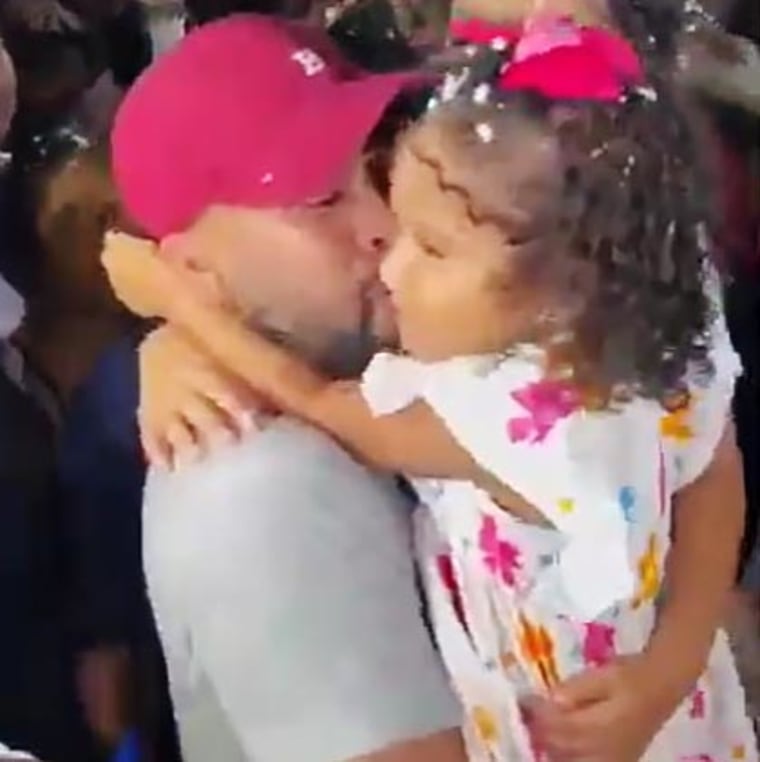
The detainees who spoke to NBC News said they had no contact with the outside world or access to U.S. officials during the four months they were held in CECOT.
Reyes did recall seeing Noem walk by when she toured CECOT in March, shortly after he and the others were sent there. She went past several cells that Salvadoran officials assured her held hardened criminals and gang members.
Reyes says he wasn’t told Noem was coming but remembers that day as the only day the detainees had gotten something cold to drink.
He said he and others pressed their faces to the bars and saw her. “We began screaming, ‘Freedom, freedom, freedom. We are not criminals. We are only migrants,’” Reyes said.
The men were sent to CECOT after Trump invoked the Alien Enemies Act in March, declaring the Venezuelan gang Tren de Aragua an invading force. Immigration officials have since used that act to deport hundreds of people without immigration hearings, alleging that they were gang members.
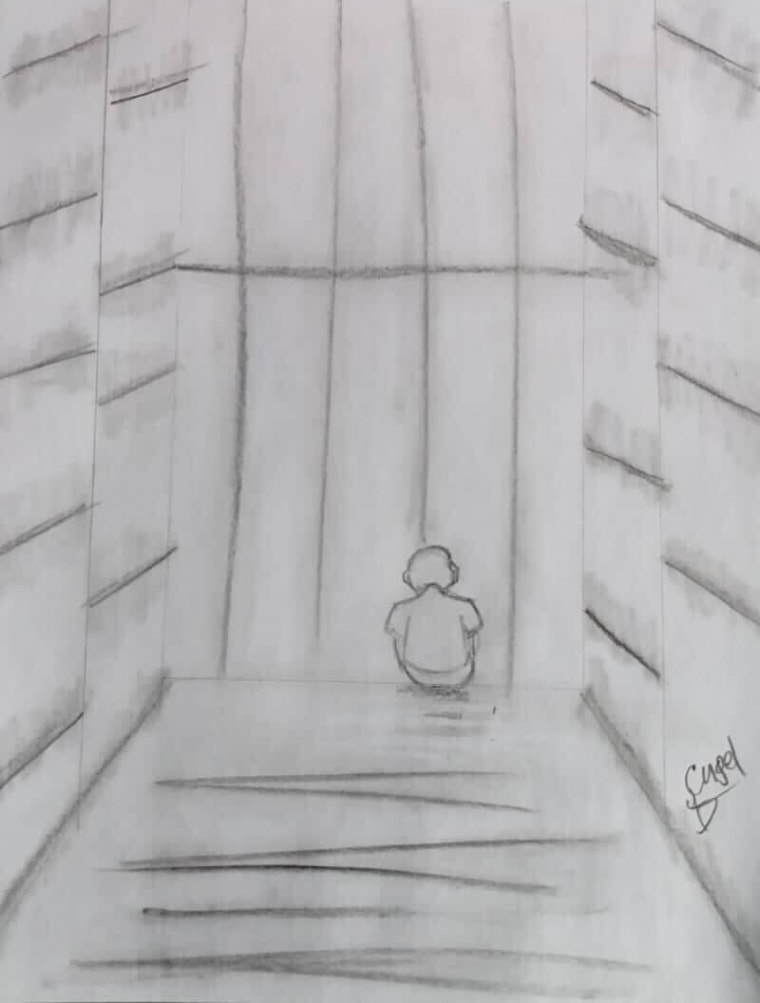
The men who spoke to NBC News, as well as the families of former detainees and their attorneys, have strongly denied any ties to gangs and said they were unfairly targeted because of tattoos that may be popular in Venezuela and are unrelated to Tren de Aragua. They have also said some migrants were denied due process and a chance to defend themselves from the accusations against them. Experts have said tattoos are not closely connected with affiliation to Tren de Aragua. An official with Immigration and Customs Enforcement previously said the administration did not solely rely on tattoos to identify the men sent to CECOT as gang members.
A New York Times investigation, which relied on interviews with prosecutors and law enforcement officials as well as court documents and media reports in multiple countries, found that most of the men sent to CECOT did not have criminal records in the United States or in the region. It found at least 32 of the more than 200 men faced serious criminal accusations or convictions in the United States or abroad. Very few of them appeared to have any documented evidence connecting them to Tren de Aragua.
The men said their strong faith in God, love for their families and a belief that one day they would get justice helped them keep going during their most desperate moments.
“Reuniting again with my parents and children was a moment of such happiness,” Blanco Bonilla said.
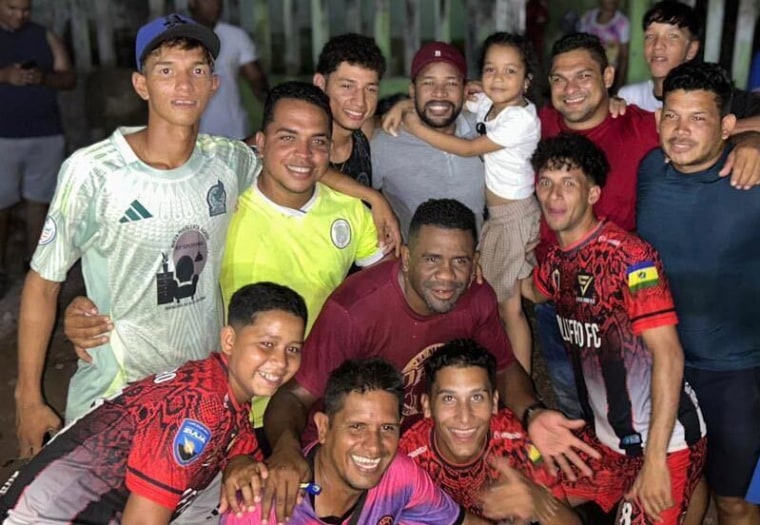
While the men resume life back in Venezuela, the question of whether they would ever return to the U.S. remains. During a status hearing Thursday tied to the government’s use of the Alien Enemies Act, the Department of Justice said it would bring any of the men back for immigration or habeas proceedings if a “lawful order” were issued.
“Venezuela has made assurances they’ll allow us to do that,” DOJ attorney Tiberius Davis told the court.
Now that they are back home with their families, the men have said they are demanding justice from Trump and Salvadoran President Nayib Bukele.
On Thursday, former detainee Neiyerver Adrián Leon Rengel filed a complaint, reviewed by NBC News, against the Department of Homeland Security under the Federal Tort Claims Act, claiming he was removed from the United States unlawfully and without due process. The complaint was filed on behalf Rengel by the League of United Latin American Citizens (LULAC) and the Democracy Defenders Fund, which describes itself as a nonpartisan group that defends democratic institutions and opposes autocrats.
LULAC told NBC News that it also planned to file a lawsuit and expected more lawsuits to come after that.
Rengel alleged that he suffered physical, verbal and psychological abuse in CECOT and that the U.S. government could have and should have secured his release, according to the complaint.
The Department of Homeland Security declined to comment on the complaint.
“We were mistreated, our rights were violated, crimes against humanity were committed,” Blanco Bonilla said.
Hernandez said he and others are still working through the psychological effects of their time in CECOT. “All 252 [of the men] are doing poorly, mentally.”
“Even though we are free, even though we are now with our families, happy and content,” he said, “there is still a big mental block, a block that particularly I have not been able to find a way to deal with.”
But despite their ongoing struggles, Hernandez said the shared experience has created a lasting sense of community among the men.
“We entered [CECOT] as 252 strangers, 252 Venezuelans, but 252 brothers came out,” Hernandez said. “We all supported each other; we were all there in the constant fight.”
If you or someone you know is in crisis, call or text 988, or go to 988lifeline.org, to reach the Suicide & Crisis Lifeline. You can also call the network, previously known as the National Suicide Prevention Lifeline, at 800-273-8255, or visit SpeakingOfSuicide.com/resources.


